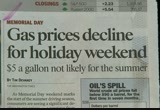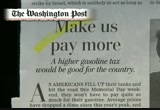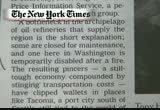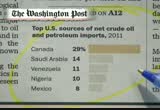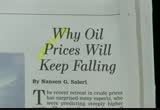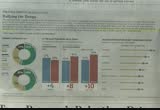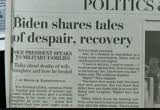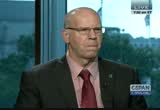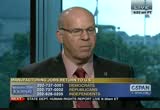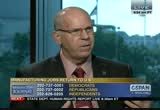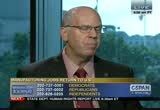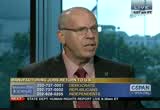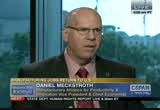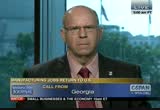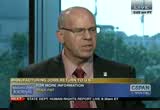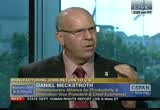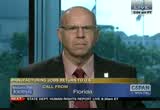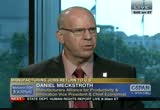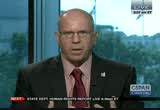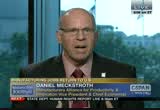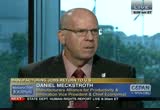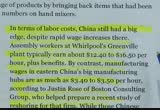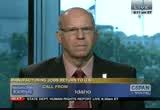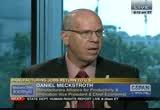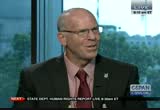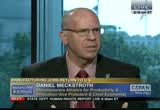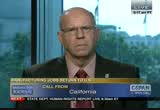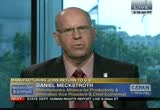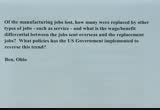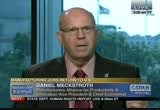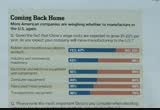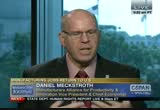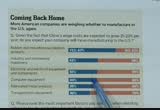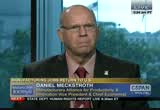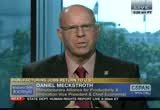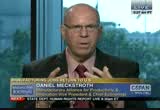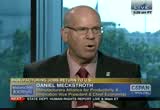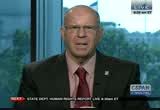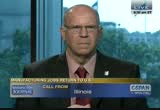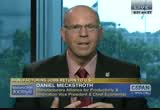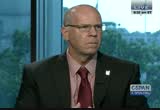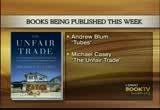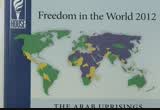tv Washington Journal CSPAN May 26, 2012 7:00am-10:00am EDT
7:00 am
7:01 am
this weekend we'll bring you moments from commencement speeches around the country. as americans enter the summer travel season and many hit the road for this holiday weekend, they are facing gas prices at the pump averaging $3.66 a gallon. we'd like to hear from enthuse morning about how gas prices are impacting your budget. are they affecting your travel plans and are they affecting your plans to work, whether or not you're taking more public transportation, how much you're choosing to drive. here are the numbers to call. democrats, 202-737-0001. republicans, 202-737-0002. independent callers, 202-628-02 05. you can also reach us online. taking a look at the headline in the "washington times," memorial day gas prices decline
7:02 am
7:03 am
norm, democrats line in collinsville, illinois, kicks things off. hi there. caller: hi. i couldn't be happier. i have a chevy h.h.r. that burns ethanol, and i'm here in the middle of corn country. and ethanol is about 30 to 40 cents cheaper a gallon than gasoline. i fill up, oh, about once every week and a half, and that drives, so it's not hurting me a bit. but then again, i tried to go as green as i could and it's working out. host: why did you choose to do that, save money or for other reasons? caller: well, i tried to drive an old chevy van until i got 200,000 miles and i couldn't make it. so i got a good deal on this 2010 h.h.r., and i really wish i would have bought it about two or three years ago. it's wonderful. host: ok. let's look at an op-ed piece in "the washington post" today, weighing in on gas prices.
7:05 am
tennessee, good morning. caller: hello. host: hi there. happy memorial day saturday. caller: yeah, that article you just read is about the dumbest thing one could possibly write. we could have absolute control over our fuel. i mean, and just raise the price, oh, that's wonderful. i'm retired, and i have to -- i'm doing ok, but i got to sit there and just -- i shouldn't even have to figure that i got to save $5 on gas, and every time i go to stations, everyone's griping about this. who wrote that nonsense? host: this is "the washington post" editorial page. caller: well, it figures. yeah, it's affecting my lifestyle. i usually treat my family to short vacations like to tennessee or the gulf coast. no way this year. i mean, you figure, let's see, three couples, plus their kids and everyone else, their grandchildren, we all take our
7:06 am
cars down there because of baby seats and everything else, and how much money it costs back and forth, us driving around in the area and everything else, and yet here we got a president that won't approve the keystone pipeline, who won't give out permits like this and everyone else. when you look at the land the government owns or dominates, it belongs to the people, we could be drilling and mining fuel of all kinds all over the country, when they got like 90% of february february and 80% of alaska under their control. it's government power, and the way to put it best to say, you have big trouble, and that includes gas. i'll close with that and let them go crazy. host: carson, california, tony, a democrat. good morning. caller: how you doing? host: good. caller: yeah, i was listening to the guy who just called.
7:07 am
host: turn down your tv for us so we can hear you more clearly. caller: ok, let me turn it around. host: go ahead and keep talking while you're doing that. caller: well, my comment is gas prices is not really affecting me too much because i don't work too far from the house. well, it's affecting my wife a little bit, but it's not really affecting me that bad. but the thing is that i'm just so mad the the establishment on how they're trying to blame the president for the gas prices. and he's going to have no control over gas prices. he can't make it go up or make it go down. at first there was blaming for the high gas prices. but since it's coming down, nobody's giving him credit for the gas coming down. and then the guy talking about the keystone pipeline. nobody's telling you that, ok, i'm all for the keystone
7:08 am
pipeline. if they keep the oil here! host: this year is the first year that fuel prices have not jumped just before my vacation. if it's obama to blame, thank you, obama. and tying in to what our last caller had to say, this is from "the washington post" on the news page. we're off the editorial page now, little control over prices at the pump. despite mud wrestling in washington -- host: shelly, independent line, harmony, minnesota. gorpg. cape hi, yeah, i'm the working poor, and my county doesn't go after deadbeat parents, so i get no child support. i'm a single mother raising a
7:09 am
child. i work 50 miles away from my home. half my paycheck goes into my gas tank. there is no jobs down here. i can't afford to move, because the rent in rochester is so high. i'm actually going to end up having to quit my job, and then i have nothing. i'm in a hard place here, and i think the oil companies who are making billions and billions of profit, they need to knock it off. host: let's look at a tweet, baby blue ice says, as an unemployed college student, my local gas station dropping prices to $3.42 put a huge smile on my face and relief on my budget. south carolina, richard, republican. good morning. caller: good morning. yes, my comment about the gas bill is that it's not going to affect me too much, because like one of the callers, i don't stray too far from the house anymore, but it does
7:10 am
affect my sister in michigan, because she was planning on coming and seeing me, and it's probably not going to happen because of the gas prices. she's just a middle-class person. she's told me she's probably not going to come. but anyways, i had a suggestion, though, if you'd allow me, not necessarily about the gas prices. just a suggestion for c-span or anyone listening that does programming that i surely wish someone would do a story, or y'all have a show about the -- about pbs' programming, even about regular programming that i watched last night on abc. in other words, i see a lot of democratic stories being done.
7:11 am
i mean, it's getting saturated, especially during this time period. and i watch tv all day and all night. and that's just my suggestion. because the life and times of bill clinton's presidency, and they keep showing it and showing it and showing it. host: so you say you'd like to us look at what you perceive as a bias in network programming. caller: pay attention to the show. host: ok. let's look at what we pay for in a gallon of gas. this shows the division, the breakup between taxes and what else you pay. 11% of what you pay at the pump is taxes. distribution and marketing, 8%. 15% pays for the refining, and 66% pays for the crude oil. this is for regular gasoline, and this is for diesel for april of this year. joining us now from gasbuddy.com is a senior petroleum analyst. good morning, and thanks for
7:12 am
joining us. guest: good morning. host: gasbuddy county county, talk about the decline of oil prices, gas prices as we head into this holiday weekend. what's causing the drop? >> guest: well, believe it or not, i know a lot of consumers think when we go into a holiday weekend, prices have to increase. but that's really a misconception. we've had a number of travel holidays where prices have either stayed flat or they did drop. the key reason they're dropping now is because crude oil has come down significantly. it was trading yesterday between $90 and $91 a barrel. that's quite a bit lower from the $108 a barrel we saw just three or four weeks ago. host: in fact, one of our tweeters said, isn't it funny that gas prices always go up over the holidays? it's all about greed. so he's talking about the perception that you mentioned as far as when gas prices actually go up. how much control do companies, do local gas stations have over when they raise the price, when they lower the price? tell us about the market economics in play.
7:13 am
guest: you know, that's an interesting question, because we hear this from consumers all the time. it really depends from one market to another, and really from one retailer to another, because if someone is in a metro area with a tremendous amount of competition, that's going to have an impact on price changes. they want to keep prices low as possible. i know people think that these retailers make a fortune selling gasoline. believe it or not, they make a much healthier profit margin on the candy, the beer and soda and potato chips that they sell inside. the profit margin is not on the gasoline. but another thing that impacts the price can be the state law itself, the legislature that controls prices. some states allow gas to be sold below cost. other states prohibit the sale of gasoline below cost. in places where you have wholesale clubs like sam's club
7:14 am
and costco, the business model is designed to have a very low price that brings people in the door where they can buy all the other merchandise and groceries. it varies all over the country. >> gregg laskoski, as we look at the drop in got prices, are there any implications for the broader economy? is it a sign of anything good or bad? is it easy or hard to tell? guest: it's very difficult to tell. the rise of the u.s. dollar in relation to other currencies can have an impact on both crude oil prices and ultimately on retail gasoline prices. things as simple as the weather can have an impact on gas prices. anybody in the southeast knows that when there's a hurricane that comes across the atlantic, if it threatens the gulf of mexico, we're probably going to see a bit of a spike in gas prices because we know that impacts the refinery infrastructure. there are so many different
7:15 am
things that can impact prices, and now, in the middle east, we're certainly keeping an eye on these negotiations that iran is engaged in. they just completed the second round of negotiations in baghdad, where they're trying to -- the u.n. security council is trying to get iran to back off of its pursuit of nuclear weapons. there's a third round of negotiations coming up in june in moscow. and if those negotiations don't go well, we could easily see the price of crude oil start heading back up instead of coming back down. so all of these things have the potential to impact gas prices. host: looking at a recent story from gasbuddy.com, it asks the questions, facts answered, why don't gasoline prices directly follow oil? why isn't there a direct and quick correlation? guest: well, again, that's because a lot of people think there should be a direct correlation. very often there are other factors that can impact the retail price at the pump.
7:16 am
so, generally, while retail prices typically do follow crude oil prices, there's a lag team. they will follow the direction. but committee sanity say there's a direct link that says if crude oil is at x, then the retail price of gasoline must be at y. that just does not exist. host: looking ahead, the federal gas tax and impact on consumers in 2013, what are you looking at? guest: i don't think we'll see any increase in the federal gas tax. people should know that everybody pays a federal gas tax of 18.4 cents per gallon. also depending on where they live, if they're in south carolina, they're paying some of the lowest state gas prices in the country. they are paying 35 cents a gallon, whereas up in new york, connecticut or california, they're paying 67 cents a gallon. i heard you say what portion of the cost in a gallon of gas goes to taxes, but there's quite a bit of variation from
7:17 am
one place to another. host: gregg laskoski joining us from tampa, florida, by phone this morning. thank you so much. guest: my pleasure, thank you. host: let's hear from key west, florida. david on our independent line. what are gas prices like in key west? caller: hello. host: hi, david. what are gas prices like where you live? caller: expensive. host: yeah? caller: yeah. host: is that affecting your choices? caller: yep. host: how so? caller: it does a lot of things in my chice. i run a small moving business, and i have to keep my prices low, and it affects how far out i can drive and go and do move jobs, things of that nature. host: we're reading that the price of gas has dropped. are you seeing a positive effect on your budget? caller: no. host: you're not feeling that
7:18 am
yet. caller: no, i'm not. caller: ok. let's go to barbara, democrats line in montana. i'll remind to you turn down your tv's when you get on the air. we want to hear what you have to say. hi, barbara. caller: thank you. i mean, gas prices are really impacting us here in montana. we are a city of about 2,700 people. the nearest large city is great falls, which is 55 miles away. so a lot of us here will car pool or, locally, a lot of people use bicycles or organize their trips so they only go into great falls maybe once a month. you know, people will combine appointments to medical specialists and so forth into great falls. i have a friend who goes to
7:19 am
helena periodically, so we organize and go to costco. but here, it is a real concern, because in montana, most of the towns are far apart. the next closest town is 17 miles away, and then the next one is about 35. and then the next largest city that has an international airport is great falls, which is 55 miles away. host: how much is the price of gas in your town? caller: oh, i don't know about that right now, but in great falls it was $3.629 the other day. host: let's hear from michael, independent, calling us from new york, new york. hi, michael. caller: hi, good morning. i was doing a case study on morgan chase and jamie dimon. i started to check out the different numbers. you know, lundberg has this at
7:20 am
$7, so i called to london school of economics to find out what dimon was, his loss was, and i found out it was, on an oil trade. they got together at barclays bank, together with his bank and british petroleum to try to hold the price of oil, so he committed to a billion barrels of oil, so he loses $1 of every dollar oil drops. so, based on $91, as the analyst brought out, his loss is going to be over $14 billion. but he can't sell it, because he's afraid it would drop the price of oil. thank you very much. great program. host: comment on twitter, the price of oil is down. the gas should be much cheaper. gas is up from a year ago. we should under $3 per gallon. that's one opinion on twitter. let's take a listen to what the house majority whip, kevin mccarthy, republican of california, had to say on fox
7:21 am
news "on the record." this is about gas prices. >> are we going to settle for $3.50 gasoline or can we lower it below $2? are we going to settle to continuing to send our money overseas or invest in america? technology today, we can reach resources we have not been able to before. some of the largest finds are sitting right here in this country. it can end the uncertainty, but improve our business and our own investment. host: congressman mccarthy. let's hear from mike, democrat in seattle, good morning. caller: hi, good morning. how are you? host: good, thanks. how are you? caller: ok. first let me answer your question whether the gas prices are impacting me. they actually are. my family and i typically, three to four times a year, we would drive to different places in the country, and we find it a little bit less cheaper and more enjoyable as a family to stick together. unfortunately, we decided to kind of cut that down to two times a year versus fourth or
7:22 am
five times as we've done in the past. so, yes, the gas prices are personally impacting me. second thing i want to say, i think gas prices is really impacting everyone. whether you are -- i like to look at it in terms of the entire picture. so, to me, there's really four major players that is in play here. number one is the company to actually extract the oil, extract the resources, whether it's a country or company, from the ground. number two, it is the refineries that refine it and turn it into the product that we need. number three is the states that have to get involved in terms of the -- in terms behalf they need from that industry to kind of keep their area running. and then number four, which to me is really the key, the average american. when we take a closer look at the cost profit, within all
7:23 am
four of the categories, and we really look at the average american, it's not just the gas prices. the average american who's suffering during this time of recession, they not only have gas prices, but they also have the car insurance to pay for. they also have the repairs. nine times out of 10, the average american doesn't get a 2011 or 2012 every year vehicle. i think the key question is to really look at who is this impacting the most f. we kind of take the conversation to, you know, who is this really impacting the most, the key is going to be the average american. i think that that's kind of really sort of the subquestion based on the question that c-span has asked this morning, too. so, everyone is being impacted, whether it's the extraction companies, refineries, whether it's the state. but who does this really impact the most? i think that's the better of our country, what our founders
7:24 am
really, really were taking a look at in terms of, you know, protecting those that perhaps cannot protect themselves. so that's my comment, and thank you so much for c-span. host: from twitter, liz writes in, no matter how high the gas goes, we americans are going to pay. we just heard from a washington state caller. let's look at what's happening in that state, from the "new york times" national page yesterday.
7:25 am
host: let's hear from a washington caller. roy, independent. we just heard about what's happening in western washington. how is it aimpacting you in long view? caller: yes, i'm a union employer that works in washington, and i have an average of quite a few miles a month of driving, and i have to work at least one day to pay for my fuel to get to work for a week. right now, i'm in minot, north dakota, and i'm making good money here, and the gas price is around $30 less. i understand the reasons, but i have a lot of people i work with that haven't lost their
7:26 am
unemployment, haven't worked for a while, and just for them to leave town to pay for fuel to hunt for work is such a large issue. i have children, 32 and 31, and they borrow gas money from me to get to work. there's no explanation, but it certainly is hurting me and my pocketbook. and i sure hope the economy gets better in washington. thank you. host: twitter, the price of gas is falling due to the low demand of a struggling economy. lower prices is not this administration's goal, the opposite. carlyle, pennsylvania. michael, democrats line. good morning. caller: good morning. thank you for taking my call. the reason i'm calling today is i was watching another network, and there's a guy on there that likes to throw the football around. he was saying the price of gas
7:27 am
was about $5. now the gas is down to about $3.42. is he going to give obama credit for the price of gas dropping? i doubt it. thank you for my call. host: a story in "the washington post" this morning, oil boom in the americas shifts energy geopolitics -- host: oil and gas production in the western hemisphere is booming, with the united states emerging less dependent on supplies from an unstable middle east.
7:28 am
vens, nigeria, and mexico. host: southeast michigan. what are gas prices like there, dave? caller: very good. someone saying on your show that prices were falling for the holidays. that's not true here in southeast michigan, which people here like to drive a lot up north. we have a wonderful, beautiful up north. but the prices here average in the low $3.90's. they were a week ago in the mid $3.60, around there. for my employees, it's all the same for them.
7:29 am
we're traveling 60 mile an hour round trips and that really hits the pocketbook when you're having to travel every day for week. i'll companies are certainly quick to bring the price down. thanks and have a good holiday. host: it's not our oil that we're talking about, it belongs to oil companies. new hampshire, john on our democrats line joins us. hi. caller: just one note i've acknowledged over the last few weeks. we have a caller on your show, but he was discussing having the trade commission investigated for the rise in
7:30 am
gas prices. it didn't go forward with that. and soon after that, gas prices are falling, falling. it is a blessing in disguise. as it affects me. i got laid off, i have a lot less money. every penny counts. host: how does that play out? does that mean less trips for fun? does that mean trying to minimize your travel and getting a lot ofer rants done at once when you head out of the house? caller: yes, yes, it affects everything. i have children -- just back and forth to school, to get them to school events.
7:31 am
i'm not an expert, but it will be something. host: john, independent line. hi, john. caller: yeah, somebody else there was talking. stuff keeps going up ever since i come back at it, service in the 1970's, and they ordered it back then, and they got caught in it. like he had a threat that he caught them with the gasoline and oil, whatever you want to call it, but i think they come back down to where i drive it, 29 cents for high contests, 26 for regular, and same with diesel. that affects everything we buy,
7:32 am
eat from the stores we shop at. the stores try to do the best we can to lower the prices, but they're going to continue to keep playing this game, keep raising it when they want to and lowering it when they want to. when you see 20 cents, almost 15 cents or more, and a short distance, and i'm talking my own town. i've seen it as low as $3.29 a gallon, and as high as $3.69 at a gas station a mile apart. so somebody's playing games with the people. that's all i got to say on it. host: on twitter, why is the mainstream media promoting gas prices dropping? chicago area is up 20 cents in the past month. what's your experience? call and share your experience of gas prices. we're seeing headlines, like
7:33 am
this one in "usa today," saying that the summer outlook, there's relief at the pump. a weak demand has killed a $5 a gallon threat that was thought to be looming, and it shows the highest and the lowest price on gas right how, the highest is in santa barbara, california, $4.43, and the lowest nationwide is columbia, south carolina, $3.22. the national average from this past week was $3. 6. alabama, john, republican. good morning. hi, john. caller: i believe that the prices on the gasoline and oil are all made up. when you take -- our banking system -- if we were on u.s. money, then there wouldn't be that much of a fluctuation in gas prices because the mope
7:34 am
would be more stable. -- because the money would be more stable. that's the reason, i believe, if we were to get back on u.s. treasury money and the banking system, we wouldn't have this problem. host: let's look at what president obama has to say about this. this is a comment that he made to aarp magazine, emerging countries, as their standards of living rise, suddenly want to use more oil. host: that was president obama talking to "aarp" magazine. there's a piece in "the wall street journal" from this week. it's called, "why oil prices will keep falling," and it's by the president and c.e.o. of
7:35 am
quantum reservoir impact in houston, texas. recently the economic bailout, fracking in the u.s. and the resurgence of exports from iraq and libya have combined to push prices down. host: let's go to houston, texas, and hear from jean on our democrats line. good morning. caller: hi. host: hi. caller: i think the gas prices are going down because it's speculation since they lost billions, everybody's eye is on wall street. and the people that's been really manipulating oil prices have slowed down because they
7:36 am
don't want to be found out. last week, the gas in houston was like $3.69, and today it's $3.26. i mean, it's speculation that's bringing it up and down, in my opinion. and the way it's affecting me is at the grocery store. because when the gas gun, the prices in the grocery store gun. host: because of costs and shipping goods across the country and to market, is that what you mean? caller: what did you say? host: because the price it costs retailers to ship groceries and get them -- caller: right. and especially the cost of meat. i don't know what happened. i know we have cows here in texas, but beef is way up. and chicken is up.
7:37 am
cadfish is like $7 a pound. i mean, this is ridiculous. host: mike, independent caller from california. caller: hello. thank you for taking my call. i just want to say that the san francisco bay area has one of the highest prices for gas in the nation but it was in line with what you said on the west coast, $4.25 a gallon, $4.24, but it has affected my bottom line. basically i go to work and back, and not much else. i'm not going to travel for the weekend. host: what are you going to do instead? caller: my family are pretty close, but i mean, i wouldn't go on an extended trip. host: i'm grateful for the new bike trails, alexandria, virginia, right outside washington, d.c. has built.
7:38 am
they're great for commuting. adam says keep pedaling. georgia, rick, republicans line. hi, rick. caller: good morning. i find it kind of hilarious that your question was infering that the gas prices are dropping, but the majority of the callers are calling in like the prices are going up. are you understanding the same thing? host: i think it's been a mix. we have heard from some callers who say the price is high where her they live. how is it in georgia where you are? caller: well, i've seen a 10-cent drop this week. i appreciate you saying that the united states has probably been 1.7 million barrels more they did in 2008. i'm just thinking that there's a perception that everybody think the prices hasn't went down, so i think they not going to do any traveling. host: let's look at other stories in the news right now. this is campaign 2012, "the washington post," looking at ad buys and where campaigns for
7:39 am
the presidency are making their biggest push to win over supporters. in the months since the 2012 presidential contest narrowed to two candidates, president obama and mitt romney and their supporters spent roughly $30 million on tv ads, most until battleground states. president obama, total spent, $10.8 million. 90% of the ads favoring obama were bought by his campaign. the president spent the most in cleveland, las vegas, orlando, tampa, and denver media marblingts. mitt romney, $17 million spent on his behalf. most of the ads favoring romney were paid for by super p.a.c.'s supporting the nominee's campaign. they spent more than $1 million in las vegas, cleveland, tampa, orlando, and detroit. we're getting a sense of some battleground cities and states for the months ahead. president obama's campaign is stepping up bain ads. from the "wall street journal," the obama campaign, despite
7:40 am
criticism, plans to expand its attack on romney's role at bain capital. host: here you can see the importance of mitt romney's business background in the latest "wall street journal"/nbc news poll. 9% said somewhat or very positive. 53% didn't know. 19% said somewhat or very negative. how much difference do you feel romney's business and executive background and experience will make in dealing with and improving the overall economy and job cons? 35% said it's a major advantage. only 8% said it's a major disadvantage. and romney's experience when it comes to reducing the federal budget deficit, 33% said a major advantage, 8% said a major disadvantage. from the "new york times,"
7:41 am
billionaire finds a new role in the anti-obama campaign. there's a documentary film based on a criticized book called "the roots of obama's rage." when news broke last year that a billionaire had considered financing a $10 million advertising effort linking president obama with the fiery, race-based rhetoric of his former spiritual advisor, he quickly distanced himself from the proposal and mitt romney's campaign denounced it. host: looking at rallying the troops and the vote of men and women in the military, here in "the wall street journal," it says the military vote usually has followed part of the republican base is an obama campaign target in 2012. one reason is because veterans make up larger than average in swing states like virginia,
7:42 am
florida, and ohio. mr. obama leads hit romney among voters at large by about four percentage points, says "the wall street journal," but i trails among voters who have served or are serving in the military. the number suggests he's doing slightly better among those voters than did he in 2008 against senator john mccain. you can see if the election were held today among all registered voters, there's a 4% bump for president obama, but among those who served in the military, romney is up by eight points. let's go back to the question of the impact of gas prices on your budget. california, mike on our democrats line. hi, mike. caller: good morning. thank you, c-span, for taking my call. i wished you guys had a chart from the day that oil was discovered in philadelphia up to and through the clinton administration.
7:43 am
you would find that oil was between, week say just for hypothetical, a dollar on the beginning, all the way to $25 through the clinton administration, bouncing back and forth the last 10 years of that between $15 and $25 a barrel. oil was getting ready basically to fall back to $15 a barrel once again at the end of that administration, because iraq, who had been shut down for 10 years, was getting ready to come back online with probably a million dollars to a million and a half barrels a day. and are that's not exactly what saudi arabia, kuwait, exxon -- exxon chevron, any of the oil concerns. that's not exactly what they wanted to see.
7:44 am
i think this is all a rude thing. once again, you had that chart, it would show it spiking from $25 a barrel to $40 when bush landed on the aircraft carrier, to $149 before congress finally shuts it down at $95 and spectators took over, and we've never seen it come back since. scommoip a republican from central pennsylvania, hi. caller: how you doing? everyone's talking about oil and prices and all that stuff, like this last guy. i'm spending a realistic number, well over $100 a week in gas just for my weekly commute. i want to talk about where the economy is and why it's not coming back. if i'm dumping twice as much money or more than i was four years ago into my gas tank, i don't have the money for disposable income. i don't have the money to go out and just throw away. all these people, if you watch
7:45 am
the news shows, they'll say, well, where's americans spending the money? they're not spending money. what's wrong with the economy? we're spending it. it's on gas. people like i who live in a rural area, we don't have that kind of money, because we got to drive -- i got a decent job. i pity these people that don't have a good job that have to drive that far to work every day. host: thanks for all your calls. let's look at a couple of final stories in the news. in egypt, mubarak against two islamists. the results in the first round are the setbacks for hopes of a middle road. we'll follow more of what's happening on the egyptian elections tomorrow morning. we'll focus on that a little bit. in "the washington post," the moment is heralded as a milestone in the commercial mission.
7:46 am
host: and a rift over the grover nor quist anti-tax pledge. unease could open up space for a budget deal, that's from "the washington post". and looking again at some more politics here with bipartisan flurry, becoming a do-something senate rather than a do-nothing senate. a reported in the "new york times" says the congressional chamber, where bills usually go to die, the senate, is actual on the a roll, passing nomination, confirming nominees, and potentially isolating house republican leaders who made senate inaction a center piece of their political appeals. finally, joe biden, vice president of the united states, shares sales of despair and recovery. he spently spoke with military families and shared his personal story about the loss of his first wife and daughter in a car crash and how they
7:47 am
healed, talking to the tragedy assistance program for survivors at a hotel in crystal city this past week. the group offers counseling to relatives and friends of military personnel who died. it was holding its 18th annual military survivor seminar. and on this memorial day weekend, c-span will be bringing you events on monday from arlington national cemetery. we'll be there starting at 10:50 a.m. eastern time. we'll also be at the veterans -- rather, vietnam veterans memorial starting at 1:00 on monday. we'll be checking in there. you can find it all on c-span monday morning. find it live, also find it on our website at c-span.org. president obama will be there at the vietnam memorial, as well as the defense secretary, leon panetta, and others. coming up next, we'll look at the manufacturing in the united states returning rather than departing. and later on, david kramer from freedom house looks at human
7:48 am
rights report from the state department. we'll be right back. >> i understand you're going to the state this upcoming week. should they have gotten more involved from the start in there have been some calls that there should have been a little bit more money put into this race from the beginning. >> well, i mean, first, there's no way that we were ever going to counter the massive effort that was dropped into wisconsin by republican special interests. the tens of millions of dollars that they've been spending, the fact that scott walker is having to depend in the middle of his term remaining governor shows you, with over a million signatures of wisconsin voters who were really disturbed by the direction he was taking the state, so disturbed that they said we have to have another election, that tells you something about how scott
7:49 am
walker has been when it came to policies, particularly as it relates to workers in his state. but also, the takeover by the republican party, by the tea party. that's why they're spending them, it's why those millions of dollars are being funneled in. we've been fully supportive. we've deployed the entire weight of our considerable grass roots operation. we've put more thanned toods,000 into the race already. i'm going to the state on tuesday to do a fundraiser for the mayor, and we sent out an email this week to our more than two million-plus donor base from the democratic party, telling them this is the -- the first important national election is the june 5 election to recall scott walker and elect mayor tom barrett and asking our considerable donor base to contribute. but it's our considerable grass roots donor base, and we know we're going to give them an infusion as a result of that effort, and we expect over the next week and a half, until june 5, we will have surrogates
7:50 am
come in, and really sophisticated get out the vote operation will help to turn out voters in support mayor barrett in what is absolutely a close election. but understandably close given what we're trying to do here is elect someone to replace a sitting governor in the meddle of their term. waup "washington journal" continues. host: we've just been watching a clip from "newsmakers." you can catch that tomorrow on c-span. our guest is debbie waserman of florida, also the head of the democratic national committee. she talked about the wisconsin recall vote of governor scott walker and the democrats' chance of winning there on june 5. we just saw a preview of that. you can find it on c-span.org, or tune in tomorrow for more. joining us now is daniel meckstroth, the vice president and chief economist at the manufacturers alliance for productivity and innovation.
7:51 am
good morning and thanks for being here. we've seen some reports talking about how manufacturing jobs are actually coming back to the united states from places like china. but take us back to where things started to go overseas. how much of an effect did the recession have on american manufacturing jobs leaving? guest: the jobs started to move off shore in a rapid pace beginning really in 2001. the dollar was grossly overvalued, which made the u.s. goods uncompetitive relative to our competitors. and then there was this business trend towards this fad, trend, whatever you want to call it towards low-cost country sourcing. there was a big differential. companies decided that they were going to take advantage of low-cost country sourcing. so you saw a lot of sourcing moved to low-cost countries. in 2002, the dollar started to
7:52 am
decline in value, which started to improve, started the process of improving u.s. competitiveness. so we had the 2001 recession. manufacturing lost three mill john jobs from the 2001 recession, and it did not get a single job back in the recovery. and then we hit the 2008-2009 recession, and manufacturing lost another 2.3 million jobs. fortunately, in december of 2009, or 2009, the job loss bleeding stopped after losing six million jobs basically during the decade. we have gained back about 5,000 jobs during the manufacturing. during the 2008-2009 recession, manufacturing lost 2.3 million jobs, and we've regained about 500,000 of those. so, we've recouped 20% of the jobs. host: let's look at this chart from "the wall street journal." u.s. manufacturing employment,
7:53 am
and it shows from 1998 up to this past year how the jobs have gone, and we see 2.3 million jobs lost, as our guest just mentioned. now we're seeing a trend in the reverse. where is this happening? guest: well, first of all, manufacturing has only recovered 20% of the jobs that were lost. just to put that in perspective for a second, the nonmanufacturing, which is all the other sectors in the economy, has gained back 50% of the jobs that they lost during the recession. so, the good news is manufacturing is adding jobs. the bad news is, in terms of percent recovered, it's below nonmanufacturing. and quite frankly, we won't get back all the jobs that were lost in this recession. it's very unlikely. the reason is very strong growth in manufacturing. it exceeds the productivity growth in the rest of the economy, and therefore, we don't typically, even with a normal growth, don't add very
7:54 am
many jobs. but i do believe we will get at least half, maybe 3 lashe 4 of those jobs back, which is a big change from the past cycle. the why are the jobs coming back? they're coming back because demand has shifted in favor of manufactured goods. for example, if you look at g.d.p. by sector, break it out into goods, services, and structures, in the fourth quarter of 2011, the g.d.p. growth for goods that changed quarter to quarter, in the fourth quarter, goods consumption was up 12% at an annual rate. in the first quarter, it was up 7%, so very strong growth and goods consumption. the reason for that is that there's pent-up demand. that is, we went through an extremely long, severe recession, where consumers and businesses postponed purchases of manufactured goods, particularly durable goods.
7:55 am
they're postponable, or a car, a piece of machinery. you don't have to replace, it you probably should, but you can postpone that expenditure. and so you just repair it, you run with old technology, and you're uncomfortable with it for a while, but as as this recession has lingered on, and this recovery has been very modest, you got to a point where you can't postpone it anymore. we're seeing a surge in motor vehicle sales. we're seeing a surge in other types of consumer durables, and we're seeing a big surge in business equipment spending, that is, it can't be postponed anymore. for example, heavy-duty truck production, up 30%, 40% this year, so very strong growth. host: recent headline, once made in china, jobs trickle back to u.s. plants. the key word might be trickle. as our guest, stan meckstroth, is sharing with us. if you'd like to join the conversation about jobs coming
7:56 am
back to the united states, here are the numbers to call. democrats, 202-737-0001. republicans, 202-737-0002. and independent callers, 202-628-0205. we'll take a look this morning at what manufacturing sectors are improving, where that's happening around the country, with our guest, stan meckstroth. let's look at what companies consider when they think about moving jobs back home tote united states. let's say they went overseas because of cheap labor, better access to raw materials. what's the incentive to come back home? guest: the commegs has changed. the dollar has declined 23%. it has declined 23% since february of 2002, which means that our goods, producing in the united states is cheaper relative to other countries. just because of the change in the dollar. another reason is the high energy costs have increased the costs of shipping, particularly
7:57 am
truck and air transportation. we have this really game changer in terms of natural gas. we have extremely cheap natural gas, and natural gas is used for heating, so any industry that uses heat sees a big advantage. for example, natural gas prices in the united states are about $2.70 per million b.t.u. equivalent. in japan it's $16. so we have a big comparative advantage just because of the natural gas. another reason is, during this period of very sluggish growth in the 2000's, relatively high unemployment, particularly recently, wages have not gone up very rapidly in the united states, particularly in manufacturing. yes, productivity continues to make these strong gains, they're what we call unit labor costs have actually not changed
7:58 am
very much relative to other countries. for example, in china, just in beijing province, the minimum wage for workers went up 21% in 2010, 21% again in 2011, and will go up double digit again this year in 2012. so that makes our workers -- it makes their workers relatively uncompetitive relative to ours. they're still much lower wages, but the differential is shrinking. another reason, i think, a big reason is the fact that we've had so many natural disasters in the last several years. you name it, we've had it. we had tsunamis, earthquakes, floods, volcanos. all these disrupt supply chains. they disrupt movement of goods. when you have a customer who says i want you to deliver to my plant just in time every day, or twice a day in case of auto plants, and if you shut down my production line, i'm
7:59 am
going to charge you, what does that cost mean? it created this need to ensure supply, and the best way to do that is to produce close to your customers. host: one of our twitter followers just asked, does the return of manufacturing have to do with the sexerk tsunami in japan? you can't predict that, so how do businesses predict that? guest: they have to build inverier to. if you got a six-week supply chain, somebody has to carry it. all your considers don't really care, they just are concerned whether it's going to be there on time. it affected auto ports. there was a shortage of electric ticks, particularly semiconductors. there was a shortage of specialty chemicals. but the floods in thailand, with the earthquake in europe that disrupted air traffic,
8:00 am
there were shortages. host: let's hear from eric in atlanta, georgia, democrats line. good morning. caller: good morning. i got a couple of comments and a question, if you can bear with me for a second. our tax revenue for the united states reached a record low of 14%. it's normally at 19%, 20%. it's been recently at 14%. that means our revenue for the government is way below historical averages to the point that the 14% revenue for the federal government, which means that we don't have a spending problem, we have a revenue problem as opposed to what the g.o.p. says. also, if a company goes overseas, they can sthake money overseas, and our tax rev knew? still at 14%. which it could be at 19% if we
8:01 am
tax the -- the companies that tax their companies from overseas. which we had a bill for that. but the g.o.p.'s sthooped in its tracks in our congress. host: let's look at the u.s. employment in factries peaked but then low point and the a.p. asked the two candidates what their plan is for boosting manufacturing. governor romney said he's committed to cutting the corporate tax rate enabling companies to reinvest more of their profits back into the company. the a.p. did a fact check, and it said the vast majority of them are small businesses that wouldn't benefit from a corporate tax cut. president obama says he's put in place a strong agenda and building than to he's created
8:02 am
incentives for lowering marginal rates and putting things like a minimum tax on foreign earnings on the place, and as the a.p. does a fact check it says again, many small businesses would not benefit from that. many small business owners are likely to fall in the higher tax brackets. again, dan meckstroth, tell us how many of these really affect businesses. guest: well, we don't take positions or follow that. but we do hear from our members. so in terms of investing abroad, you have to distinguish between foreign directing investment and this so-called run away plan issue. most of the investment is
8:03 am
foreign investment, participate in foreign markets. in other words, 95% of all people live outside the united states. in other words, we only represent 5% of the world population. so personally, it's rational to invest abroad. in fact, if you look at the terms of the growth rate, all the advanced economies since the year 2000, general production in economys are up 6% for the decade. industrial production in everything else in the developing economies is up 115%. so where would you put your money if you wanted growth? if you pick china, its production is up 300%. again, where would you put your money if you had investors money, where would you employ it? where the growth is. so it's perfectly rational to invest abroad, but the next
8:04 am
question has to do with run away plants. i'm sure everyone knew plant in left and is producing the same product in china and shipping back to the united states. from statistics, that's extremely rare. we know what foreign affiliates are. in 2009, of the sales of u.s. manufacturing foreign affiliates, 89% of those sales went to a foreign customer. only 11% came back to the united states. a very sbhall portion comes back to the united states. of the vast majority, they come back to the u.s. parent. in other words they are filling a product line. so it's really -- a runaway plant are really small in the chemoof things. >> let's go to hills fwrow, florida, republican caller. hi jim. caller: hi.
8:05 am
my question is more of a comment. i don't think our government is really encouraging businesses to stay in the united states for two reasons. first of all, we have the highest tax rate in the world. foreign businesses. and secondly, we allow imports in our country that compete with the domestic business with no or little tariffs. compared to what they tariff our products abroad for example, mexico won't allow any products to compete in their country. where they manufacture the equipment. i'm just saying that we don't have a culture, a government that really encourages businesses to stay in this country. >> first, i agree. the u.s. has the second highest comfort tax rate in the world
8:06 am
and we will have the highest after japan reduces theirs. that makes us uncompetitive, relative to ourness competitors. so i totally agree. we have that all again but our tax ends in the countries where they operate. it's called a territorial tax system. almost every country in the world has a territorial tax system except the united states. we are one of the very few countries in the world that tax the profits of our foreign affiliates. most other countries where it's tax worthy, income is made and it's not taxed in the united states. so we are at a competitive advantage because we tax foreign affiliates profits above and beyond what they are already taxed.
8:07 am
>> and some manufacturing work coming back to the united states that was sent overseas initially says the return of some production to the u.s. profiled by whirlpool and others is reading how there was handmade mixers that were made and now it's the lead purchase is from china. let's hear from sharon on our independent line. good morning. caller: good morning. my question is if we put the occasional theory of where the government actually -- and what starts at growth then people would be -- more people would be working in that and also bring back manufacturing jobs, because the main would be hired?
8:08 am
yes? guest: during us, there was an anonymous -- there was a multiplier that i don't believe it was substantially more than $1. $1 of fiscal spending cost $1 of g.d.p. growth. no one knew for sure we would come out. so it was a good idea. but at this point we have a huge federal deficit. and we're running annual deficits of at least 8% of our g.d.p. and our growth debt is so we're going to see our debt rise substantially. and if we don't do something by the end of the decade or 2020, 2021 or 2023, we're going to have growth rates comparable to
8:09 am
greece. so at some point we have to have austerity. we're in a period of austerity now in the sense that the annual deficit falling. i just don't see the room right now for another stimulus program. >> for the manufactures alliance for productivity and inknow vacation. host: here is what manufacturers look at. labor costs. 57% is the most important issue. the product quality, 41%. ease of doing business, 29%, and 28% is the proximity or closeness to customers. so labor costs, dan meckstroth, how can the u.s. compete? guest: well, if you look at the per cam tae g.d.p. theirs is 1%
8:10 am
of ours. with that said, is their productivity 1% of ours? we produce products that require intellectual property and typically don't produce a lot of mas -- mass-produced products on an assembly line. there's different configurations and skew numbers, so that's how we compete is through productivity and cost-saving equipment. we apply capital to labor. and we apply advanced managerial techniques such as total quality management and all these techniques to improv stability. >> assembly workers --
8:11 am
host: assembly workers guest: yes. but if we can produce 10250eu78s as much as they can with the same amount of workers, there is no cost differential. it's not just the flat rate. host: shawn, republican caller. good morning. caller: hi. off question for dan. one of the things that was pushed in bama care. when they were lying to the american people about how much it would cost, etc., about for their votes and everything. what i wanted to know was what was your opinion on why they didn't allow insurance companies to compete across the nation.
8:12 am
host: shawn, what does that have to do with manufacturing? caller: what does that have to do with the cost of manufacturing? the none manufacturers would have. they figure they would have to pay their employees so much for their interns, it would have been flashbook money. guest: the good news of why we should have -- for the workers, an extremely high share. over 95% of all manufacturers. even small manufacturers provide benefits. for the non-manufacturing firm it's something like 75%. so manufacturing disproportion natalie provides benefits to their workers, pensions and
8:13 am
health care, particularly. so that's one thing to be proud of in manufacturing we do provide benefits. and there's no question that's the biggest problem in terms of cost structure for labor is the benefits package. particularly is a health care, which is not just a problem for manufacturing. it's a national problem. because we have this entitlement problem that's driven by health care that they could grow geometrically as the population ages and there's fewer workers for the retiree. host: our last caller was talking about health insurance and then another tweet says the idea that companies have to be bribed to come to the united states is repug informant. what happened to competition of quality in products?
8:14 am
guest: i think it's leveling the playing field. firms are going so invest abroad, because that's where the growth is. and they should do it. because that's where the customers are. most people don't think of themselves as a u.s. company. they are u.s.-based but think of themselves as a global company. they supply customers globally. so they produce rand distribute and react globally. so what the u.s. has to do is just compete. we ask workers to compete. there's competition for everything. and so there's competition for firms to stay in the united states. how do you succeed this in that competition? you make production in the united states advantageous relative to competitors. host: and the democratic caller
8:15 am
in florida. good morning. caller: good morning. thanks for having me on your show. you know what i am waiting to see? that i feel bad with -- let me finish what i have to say. i see that why health care and social security bill. now, i realize that corporations have to pay half and we pay half. so by cutting out social security and med they are going to cop back here, because imports are expense i going back and forth with all this stuff. so they don't wanted to come back. and this is why he wants to could you tell out social security and medicare, so they won't have to pay that either or their fair share of taxes. guest: ok.
8:16 am
host: well, one thing -- guest: i mean, i think -- basically -- um, companies come back to the united states because we're the largest her to in the united states because we are the largest market in the world. i'm not talking just u.s.-based multi -- are foreign-owned. so why would they come to the united states in because 2007 largest, most dynamic market in the world. i know this caller mentioned transportation and how are shipping and fuel costs affecting the location of companies that they are choosing to set up shop in? guest: it does a have aen impact. i think it's too early to say that -- like i said, i don't believe there's a mass
8:17 am
november. any one direction. so it does affect new plant decisions. if you're filling in a new plant, you want to optimize the supply change and reduce the distance between you and your suppliers. that's why the u.s. is the hub of manufacturing. we had a concentration of a lot of that. host: welcome. on our democrat's line. caller: i wanted to focus on this issue. as firms repatriate to the united states and reconstant constitute their manufacturing processes, they are going to be doing it with a lot more technology or changed technology, and the implications of that, are fewer jobs than they might have had from the same process if it was less technology jais.
8:18 am
-- if it was less technology apologized. -- technologized. guest: i think we'll be recovering more jobs. maybe anywhere from 750,000 to more additional manufacturing jobs. and now i think it's going to level out. but you're right that manufacturing historically has strong productivity growth and the way to improve there is technology and the equipment. but the benefit of that is it let the record show the cost of manufacturing goods. part of the thing is the increase in the standard of
8:19 am
living. purchasing more with the same dollar is producing more goods with the same amount of earth. so manufacturing is supporting the growth and standard of living through productivity growth and they are passing those gains to consumers in their form of lower prices for manufactured products. the economy is. a market system will fully reuse resources. so we will see the unemployment rate continue to fall. please fall slower than we would like. but in the future, we'll be talking about labor shortages again. there will be growth in jobs coming from the service side of the economy. as it has for the last several decades. flip to o hero it was asked how many manufacturing was replaced by service jobs and what's the wage benefit differential
8:20 am
between the jobs lost and the new emerging economies in the united states? guest: studies have sthone differential and manufacturing premium, for all the similar skills and receipt is and beforing page. an 7%-9% premium. caller: then -- host: then he asks what's going to reverse the trend of jobs going overseas? guest: very little. think it's primarily relying on economics. there are things we can do. i can talk about those. one point i want to make is you have to remember there's huge flows that go on every single day. for example, we measure. there's a measure for the numbers of opening and there
8:21 am
were a 3% of plants closed and opened in the third quarter of 2011. in terms of jobs. every month, every month 2% of all manufacturing jobs turn over. in fact 2% of manufacturing jobs were eliminated and 2.1% of manufacturing jobs were created since december of 2009. so there's huge feliz go on in terms of plants and people. it's just host: when asked whether or not they are considering manufacturing in the u.s. again and m.i.t. said they were considering moving some manufacturing back to the united states. there's a industries that were
8:22 am
looking at returning back home. host: so the high zest rubber and plastic products. why is that the highest? guest: natural gas. machinery, we have a natural advantage. it's not that the construction market is great here but there's a lot of demand for infrastructure in developing economies, and we're the net expert in -- exporter in mining and drilling equipment. medical equipment. another area is this fee for a
8:23 am
replacement cycle. guest: huge gains in production. so we have an advantage in many types of machinery. aerospace. most of bowing's orders come from abroad and they are sold to foreign airlines. we have a very strong competitive position in aerospace. so that's the reason why you're seeing of >> it's very difficult. this is, i think a very or to do what you possibly can. because once you lose it, it's extremely difficult to get it back, and the electronics and other -- the contract
8:24 am
manufacturers located in china and other asian countries, very difficult to compete with that act. >> if we tweed good morning. caller: yes. i was wondering why you always talk about romney and obama but never bring up gary johnson. he advocates for the fair tax which would get rid of corporate tax cuts. and increasing sales tax. wouldn't that increase money in the united states? guest: my personal opinion is all taxes should be paid by the consumer. we shouldn't -- there's a so-called fairness reason, but
8:25 am
that's a political thing. caller: how are you? host: good. what do you think about manufacturing jobs in the u.s.? caller: get all the money back that was spent in the foreign countries during saddam oy hussein. he relilled po . host: any comment? guest: that's a political decision. i have nothing to say about that. host: chief economist at the manufacturers alliance for productivity and ino vacation and the p.i. is an a public economics researcher in arlington not too far from
8:26 am
washington, d.c. let's go to pat. republican. caller: i would like to restate what many people said. which is we are the mass market for the world and henry ford understood back then that if you are going to mass produce, you have to have a mass market. we are the mass market, and right now the world is faltering because people in this country cannot afford to buy because so many people are underemployed or under combleement to have a tariff program so that if you charge 25% on the goods we import to you, the same tariff would fly to you when you import to us. >> first of all, the u.s. economy is in a recovery.
8:27 am
guest: from that perspective in terms of manufacturing, the u.s. economy is 100%-plus for coverage. completely recovered in september. we're on a growth path. i think we're on a sustainable modest growth path to a little over 2% growth per year and reel out going i won't be fu week. we saw in december of 2007, until the first quarter of 204. it would be 2014 before the manufacturing is fully recovered. so i do believe we're on a sustained growth path. i think it's a relatively modest growth and if the recent manufacturing is growing faster, it's because right now
8:28 am
the growth is in the area of manufacturing gads. if -- >> looking at the brookings institution, they put out this look at where jobs are? to host: 95% of all high-tech manufacturing jobs are in metropolitan areas. and you can see where the hot spots are around the country. guest: the reason for that is there's a delustering phenomenon. as you mentioned before the transportation costs but there's also a talent. when you cluster manufacturing together, then because of this huge flow that occurs between plants and labor every month, every second of the day. you're able to find talent in a local area. it's because there's -- so the industry has been clustering around certain industries.
8:29 am
so it's in the boston area and machinery is concentrated in the midwest. ohio, indiana. michigan. particularly in michigan and ohio, kentucky for the auto industry. so this clustering, there's a clustering phenomenon that occurs because you're bringing together -- you're able to trade talents and suppliers, and able to minimize transportation costs. when manufacturing clusters in various regional area. good morning. caller: good morning. thank you for being on c-span, daniel. i'm in@kay for the federal, national health care and i'm wondering would that help businesses and manufacturing companies -- twhuled help their bottom line if there were federal health care? guest: um --
8:30 am
host: lou, are you still with us? caller: yes. well host: well, we've already talked about health care and dan is not getting so much into the politics of things. so why we have you on the line, what's manufacturing flike your community? >> well, i see a lot of people doing service i have a good heart and would like to see more jobs in america. host: when you are shopping, do you look for products made in america? does that matter to you? caller: actually, i do survey items made in america. it's very difficult for me to find a label we see countries
8:31 am
that we have never heard of before making products. but i want to see jobs back in america. guest: and that's very admirable. i think that the to talk about some smuss. what can we do? what kind of public policies would promote or help manufacturing? and i think really they are on the supply side. it's not giving -- doling out noun manufacturers, so how do you increase -- i think we deal a lot with senior executives and c.e.o.'s and the fact that a lot of earnings are tratched abroad, because they don't want to pay the cost of repate yating those earnings. foreign tax holiday on these
8:32 am
foreign earnings that are trapped abroad. the importance mentioned before. most manufacturers are small companies. small businesses, and they don't bay so we need a reform of the whole tax system to encourage investment in determined i think the problem in manufactureing is if you look at the trend in terms of the closings and openings of manufacturing plants, it's not that there's a big surge in that, the problem is that the new openings have just plummets. meaning we're not encouraging ghoin and buy and expand and start manufacturing. >> we have been stalking about the slight number in the rice of manufacturing jobs in the u.s.. host: after a 39% in 1910, it's
8:33 am
risen at -- the manufacturer's alliance and innovation, daniel meckstroth, thank you for coming in and talking with us about this. >> you're welcome. host: coming up next, david kramer from "freedom house" then we begin our weeklong series with couple nuss. we'll be right back. >> the books being released this coming week. "journey to the center of the internet," there's a look at how the internet functions. and another argues
8:34 am
international governments need to work together to create an efficient and fair global market and the unfair trade, how our global financial system destroys the middle class. in cronkite, -- it's a book looking into walter cronkite. and "in so rich, so poor ." why it's so hard to end north america. ? "born to battle," covers lieutenant yoo licenses s. grant.
8:35 am
the process of judicial decision making. look for these titles and watch for the authors in the near future on book tv and book tv.org. >> it passes by far too quickly. so doing your time here, use all of your unique, god-given talents to serve one another because that will be the true measure by which your life will be juveraged. >> memorial day weekend watch commencement speeches. politicians and business leaders share their thought 9 >> "washington journal" continues. host: stephen kramer is president of freedom house.
8:36 am
thank you for being here to talk about human rights this morning. >> thank you. good morning. looking at human rights across the globe, one of the take aways is it was called a year of significant change in places like middle east and africa. we've seen changes in the regime. how has that affected civil rights? >> well, we've seen a part of the world, countries in the middle east and after can a. this is spell -- like anybody , too, they want to have their rights respected. so in 2010 and continuing into tunisia and lip libya and other countries including syria and bahrain and yemen, we, too, say
8:37 am
we want respect for human rights and no longer want regimes to run our country. i think developments of 2011 in the middle east and africa are comparable to events in 1989 and in central europe. host: let's listen to what hillary clinton said. >> as secretary, i have worked with my superb team on advancing human it's -- human rights in a 21st century landscape. even as we stand up against age-old abuses where women have and continue to be marginalized, we're helping them become full partners in their governments and economies. where lgbg people are
8:38 am
mistreated and discriminated against. we're working to bring them into full participation in their societies. we're expanding access to technology and defending internet freedom because people deserve the same rights on line as off and we know that in the 21st century, human rights are not only a question of civil and political liberties. it's about the that whether people every have the chance to make the most of her of their god-given potential. so we're working around the world to give people a stake in their societies and economies and support them as they determine for themselves the future of their own lives and the contributions they can make to the future of their countries. we think this is the way together we can make human
8:39 am
rights a human reality. now, as these reports document, there's a lot of work that remains to be done. too many places governments continue to stifle their own people's as operations, and in some -- host: our secretary of state hillary clinton talking about human rights. david kramer with freedom house. elections there. if you look at the elections unfold, how much are human rights coming into play with the egyptian people? guest: i was in cairo a little less than two weeks ago and egyptians are talking about the elections this ways they have never done before. they openly talk about politics and who they are going to vote for. that's a healthy development. so now egyptians think there's something at stake and they can
8:40 am
make decision in but the result i think are going to represent a problem not just before eegyptians. two -- one who is a holdover from the mubarak era. those pushing for a more secular kind of figure, i think they are going to be very disappointed and will feel even disenfranchised as a result of these elections. host: as we look at the worst countries in human rights. guest: this won't surprise you. it's north korea and iran and china and they also site ooze beck stan and eck doirl new
8:41 am
guinea. syria in the gross human rights eye abuses under the assaad regime. but even places like belarus and chad and cuba. so there's major problems around the world. but my organization also produces a report that assesses the state of freedom in the world. the countries green are according to our requirements and the not free countrys are in purple. in our results, not surprisingly not quite closely with the state department's human rights reports. host: to call in, the numbers below. china, how is china weighing
8:42 am
in? we've heard so much attention lately on the activist who has now come over to the united states. chen guangcheng's experience. as a dis dependant, his story might shed light on the story of dissidents. guest: to the state department's credit, china is flagged as an area of real concern. . -- guest: we've seen a crackdown against the minority religions and such. china is the country of real concern, and the chen case i think has highlighted how the chinese authorities will go after their critics. chen guangcheng didn't do anything illegal. he was simply detained in his house. not simply. being detained in one's house
8:43 am
is not exactly freedom. but his escape highlighted to problems people like chen face in his country. since the developments in the arab world have been acting in a i had no and insecure fashion. and i think there's -- host: let's go to georgia. jane, democrats line. hi jane. caller: yes. it's good to speak to you. this is the first opportunity i have taken to utilize this nice service c-span has. i had one question for the good gentleman that's with you this morning. you're talking about human rights. i'd like to ask the question -- pertaining to why the united
8:44 am
states senate doesn't respect the human rights in regards to happened to have 60 streets close down something when the u.s. house of representatives only yawses the 51%. guest: it's a call maybe less about human rights and more about procedure and the senate rules are long standing. there has been debate about how to deal with the issue of closure and filibusters, and you do need 60 votes in the senate in order to get a vote or consideration on the floor. host: one thing that goes before the senate is treaties. treaties that the united states has to ratify is treaties. guest: but both the senate and house act as a check on the executive branch of the u.s. government.
8:45 am
and the independent institutions and separation of powers in the u.s. is extremely important for doing what it can to preserve and respect the human rights and democracy in our country. it's not stay state to host: our guest david kramer is with freedom house and do their own assessment freedom in the world 2012 looking at democracy and rights throughout globe. why should americans care about this? when we look at countries around the planet, what's our stance? guest: it's important for other countries to move in a democratic direction to respect human rights it's not to follow an american model. we're talking about sharing fundamental freems and common, universal values. those include the freems of expression, the freedom of association, freedom of
8:46 am
assembly and freedom of speech, freedom of and from religion. whatever kinds of freedoms we're talking about, we do want other countries and governments to respect those fundamental freedoms. we don't expect home the be the most unrelibel problems for states and other and the most reliable countries for appropriating peace and stability and prosperity. host: good morning. caller: i wanted to ask what mr. kramer thinks about both hillary clinton and barack obama giving away america's sovereignty through treaties. and once they do that and ratified by the senate, and then i guess resigned by barack obama to give away sovereignty, if there's anything that a new
8:47 am
president can do, like a romney who comes with a through a he does something, anything to reverse those treaties? host: we'll leave it there and get a response. guest: i think it's perhaps a little less about sovereignty that it speaks about the prominence of international law and how it relates to u.s. law. u.s. law from our perspective takes precedent over international. but we also try to follow international conventions and enormous and we're parties to many of them in a -- the anti-ballistic one is an example. host: independent's line, good morning. caller: good morning. i wanted to, a, i wanted to
8:48 am
know whether you guys railroad "wednesday night baseball" to see the human rights report put out in response to the report from secretary clinton? and b, my other question is more about democracy in africa. because in africa, there are some democracies in there but they are not all like ours. so i want you know what kind of action or approach would apply one democracy? guest: you said a china report? >> yes. host: ok. thank you. guest: in russia, the issue is a similar one. host: and this is a response so the state department puts out a report and china says well, here's our take on it. guest: and russia drew criticism to the united states
8:49 am
and canada. guest: these are reveems any they are of which in our map is considered free. both are considered not free and both are flagged for major human rights abuses. i don't take the chinese or russian report fairly whatsoever. they are -- in terms of democracies in africa, and you mentioned egypt. but there are certainly others, south africa is one of the green countries on our map. there are others as well. egypt, i would argue was not a democracy before mubarak fell. it's still not. although there have been some positive developments. there's also been some negative
8:50 am
developments. he stayed in regime through cracking down on human rights at an election in which the opposition wasn't allowed to run or win. many people if egipt now is its president. so in egypt, while mubarak left in structure a lot of thingsing that ruled the mubarak world remained in place. and the free and fair test was passed for the most part. they still need to come one a new constitution and have a constituent assembly to define the powers the president or parliament would have and what role the military is going to play. a lot of uncertainty, and
8:51 am
lastly, there's been a crackdown on civil society in egypt. i know that personally, because my organization was one of those raided by the 29th and a trial continues against my local staff and others in egypt. so the situation is by no means black and white or -- host: n.p.r. points out in the annual human rights report the u.s. says china's record is deteriorating. jim asks a basic question on twitter. what's the metrics of the -- the universal metrics on the human rights? guest: there are many who
8:52 am
ascribe to basic human rights. they include religion, free press is also fundamental to ensuring respecting the human rights. because you have journalists that can expose not only corruption but abuse of rrts. of -- you need a judicial system that's independent and not subject to corruption and pressure and there are organizations that also hold human rights as central to their in my opinion, including the organization for security and cooperation in europe and in the united states and others. there's also a number of international conventions thangesd client civil rights and liberties. host: our guest david kramer
8:53 am
joined freedom house in october of 2010 and led at the stale end of a george w. bush administration. host: that is the one that produces the state's human rights report. guest: in addition to the numbers of ambassadors. host: you get a senches of how it happens behind-the-scenes. guest: yes. and want to some throughout people at the bureau for all the hard work they do in putting this all together. host: to providence, road island on our democrats line. caller: i would like to ask you specifically your todd: -- your study, the one how you showed on your map the areas of freedom. does the study also include
8:54 am
disenfranchised groups such as the lcp group, a late-game lesbian's group may not have the same degree of liberties as the non-lgtb group in the various countries you've studied? >> that's a very good question. guest: we look at the civil rights and liberties in a country and the lesbian, gay, bisexual and transgender groups in the countries, we are including that in you are a work. i also want to say we are looking at minority business groups in places like china.
8:55 am
and that's also in the state department's report. so these issues are important both to our determinations on countries and how they are doing in political rights and civil liberties, but also very much in the state department's report and both secretary clinton and mike pose they are in highlighted the issues for them in the rollout report yesterday. host: transgender advocates are hailing argentina for having some of the best laws in for transgenders. caller: i would like to say to your guest, i think attention has to start here at home. i am a 63-year-old male. and i have experienced abuses.
8:56 am
you can't make contracts. you can't keep a job. you've got over a million sore african-american men and women and another million in prison over two po -- i appreciate c-span and appreciate the opportunity to talk. i'm a veteran from the vietnam era. and veterans -- on the street right now -- if you got a job, it's not secure, because employer can get rid of you at any point. so before we go anywhere, talking about human rights, i think we need to start right here. guest: the caller makes a very good point. i appreciate his service in the past. there's no question the united states has a lot of room for improvement. and it's -- its handling of
8:57 am
human rights issues, interrogation of suspects. we had the problems of abu ghraib before. the guantanamo bay detainees still continue to be an issue even though president obama indicated he planned to close guantanamo bay a year after he dame to office, because it's a very difficult issue to figure out what to do with the detainees. i think we take a certain sense of humility in looking at other country's short coming and abuses in human rights while also trying to fix our own short comings. host: in the saturday new york times, after guantanamo bay
8:58 am
bayh, starting anew. profiling a man who was kept at guantanamo bay bayh and a c-span junkie writes in saying how could we criticize anyone when we kept a private for leaking information. guest: he has been charged with leaking classified information which is a crime in the united states so, i would not get too wrapped up in his case. host: republican, in aalaska. good morning to you. caller: good morning. i'm calling about this. i agree with the previous person who was on this. who was on there. america seems to experiencing wherever else in the world they are gaining human rights we are losing them. our bill of rights seems to be under attack. we seem to be losing ground and heading toward socialism and more and more of a policed state. host: how much are you concerned aboutor country's
8:59 am
human rights conditions? >> well, caller: well, they say charity starts at home. we've got to clean house and make things in this country right before we can start tackling the rest of the world. we can't solve everybody's problems. host: let's look at the human rights countries of focus. iran, afghanistan, bahrain, china, egypt, iran, iraq, libya, pakistan, the republic of korea. some of them we discussed with our guest already, david kramer, but the list goes on. host: on the democrats line, go ahead. caller: good morning. in a globalized economy, why not include workers rights and human rights and civil rights? why do we continue to sign trade greements in unions where child labor laws are not honor
9:00 am
and environmental laws are not considered for the worker at all? and imto we should -- guest: i think workers rights are very much a part of the state department's report on human rights and part of our reporting on human rights. the ability so gather as unions and come together. to try tow push back on either companies or governments that may try crack down they are very important. and when it comes to trade issues workers rights as the caller is aware do come up as an issue. they have been a concern when the trade pack came up with panama and others.
9:01 am
and it's not to say that we are doing everything right when it comes to workers rights and trying to promote those overseas but i think they are an issue that does factor into both the state's report and our report. >> on twitter. iveragets great question. women's rights are fundamental both to the state department's investigation of human rights around the world as well as to freedom houses and in a number of countries around the world women are oppressed sake saudi arabia where they just granted women the right to vote to election the only problem is they can't drive to the voting booths. in ofse places there's concern -- other places there's concern about how religion may affect women's rights. and this has been an issue in egypt. and i think it will be
9:02 am
emphasized even more in light of the election results we have seen where the brotherhood candidate will be questioned about his views on women and womens' ability to work if they choose to, to participate in political processes. and so women's rights i think are fundamental. this has been a central issue with of secretary clinton's time as the state department where she has placed enormous emphasis and has a terrific envoy for women's' rights. emphasizing importance of women's' rights and i give them lots of credit for emphasizing this. the previous administration chi worked as well, laura bush was central to this and condi rice and others. women's rights i think, the person who sent in the question absolutely right nfment places where you have repression against women you will not have free and democratic societies. women have to be treated as equals there's no question about it. >> let's go to state college,
9:03 am
pennsylvania and hear from hassen, republican caller. kiveragetsdz i have a question regarding the comparisons between the declaration of the rights and the universal declaration. i find it very eloquently written and brief, only one page and 17 articles which everyone can understand. where as the universal declaration is complicated and badly written. is it because the universal refers to the creator where as the french declaration just says the humans? that men are born free and have the equal rights? that's my question. zoo where are you from originally? kiveragetsdz i'm from -- i'm visiting with state college but i'm from georgia but originally
9:04 am
from a middle eastern country. iveragetsdz i think the answer is you get a better product when fewer people sometimes are involved. that may sound anti-democratic but in france you just had france has the agreement universal declaration of human rights. you need to have a whole bunch of countries come to agreement. and when you have such a larger more inclusive process, it can be a little messier and perhaps not so elegant. zoo michigan, jesse, democrat's line. kiveragetsdz good morning. thanks for letting me speak on c-span. i want to talk about human rights. i have a business running it for a while. and you have this right wing extremes in the republican party that's talking and women,
9:05 am
health plans and the like. and they've been doing this for quite a while. i always watch this stuff. and it never comes and they talk about it for quite a while. and this group [inaudible] the ku klux klan. that's what they are nothing but terrorists. iveragetsdz i think maybe what the caller is getting at is that primaries, whether in the republican or democratic party, tend to play tot more hard core elements of each party. but i think once primaries are over, the candidates get forced to move a little more to the center. how romney does on that remains to be seen. but certainly some of the positions and rhetoric that came out of the republican primary campaign were disturbing to many people.
9:06 am
but i think the candidate that emerged was probably the more centrist of them although he also states that he is very much a conservative. but some of the positions i understand where the caller is coming from. zoo independent caller from maryland. good morning. kiveragetsdz good morning. i have a question about the definition of our human rights and what is the standard that applies. because movel when you look at third world countries the human rights abuses is supported by the multinationals support bid the countries. there's a lot of hypocracy on it. if you talk about human rights, you've got to tackle the problem underlying human rights.
9:07 am
so your guest said a while ago that u.s. laws take a precedent over international law. guest: you mentioned multinational companies and there are some companies that do extremely good job in promoting human rights. but let's be clear multinational companies aren't in the business proto promote human rights they're in the business to make profits. it's the responsibility of civil society, tithes responsibility of government, it's the responsibility of media and parliament to ensure that human rights are respected. multinational companies should not be complicit in human rights abuses, there's no question about it. and those companies that engage in corrupt activities or are complicit in human rights abuses should be called out should be shamed and we should even figure out other ways to penalize them. but there are a number of
9:08 am
different actors and players who have a role in promoting human rights and it's i think something that requires vibrant civil society, independent institutions, a free press, and a fundamental understanding of human rights are. host: talking about human rights reports from around the world that the state department put out. let's look at the bright spots. colombia, where else? what are they doing? guest: in burma there certainly has been improvement. i think there has been some exaggeration of the improvement. the fact that ang sang issue chee is now a member of the parliament is a positive thing but i think that the ethnic fighting continues to be a major problem and in fact according to some reports has even picked up. the reforms that former junta
9:09 am
has launched have been largely centered in the cities it hasn't quite expanded out into the rest of the country. there's no question that there's been change in burma. i don't know whether that change is irreversible or not. i just had a team that was out there in burma doing an assessment of the situation and the situation is more complicated than simply suggesting that it's gotten a lot better. colombia has improved in our rankings as well as the state department's and colombia is listed in the partly free caltry, close to moving into the free category. i think if there's more progress we'll see it move into the free category. tunisia is another country where the events and the removal of the ben ali family from power is a positive development. you've seen elections for a constituent assembly, even though an islamic party is in
9:10 am
control there it has taken a moderate approach. and we should also understand that in the middle east and north africa islam is going to play a significant role in these countries's future and their politics and their governance. in one should not assume that islam is fundamentally opposed to democracy and human rights. it can be used to abuse human rights but i think very much that moderate islam can be consistent with seeing promotion of democracy freedom and human rights around the world and tunisia i hope will become a solid example. indonesia is another one where there was a piece in the "new york times" earlier this week suggesting that there are problems in indonesia nevertheless, the largest muslim country in the world, is in our ranking a free country. it is a democratsy and i think indonesia also represent as vs positive example. host: michigan, high there.
9:11 am
caller: thank you for take mig call. i just want to say my concern is for the human rights reports for violation of the united states of america. my concerns are -- and i also want to clarify, what is the purpose of the definition of civil rights? i believe it is very important. and the report not just the standing before violations of rights here. and our court system and law enforcement agencies against the poor. still, people, as well as hate crimes and gang violence and i can tell you here in michigan the civil rights department sucks. they discriminate against people every day. guest: it's an interesting question about the question on civil rights. it's not in the news very much
9:12 am
and i couldn't tell you who the chair is. which suggest that is perhaps it is not playing a sufficiently important role. we at freedom house assesses the freedom and human rights in the united states. we do rank the united states it falls into the free category but it is not the freest country by any means. and so we do recognize that there are a number of problems in the united states including the way the protesters and the occupied movement have been handled. and for the u.s. government the state department is not allowed or perpt in its human rights report to assess the situation in the united states. but it does through so other means. host: one tweet.
9:13 am
what's the u.s. responsibility when it comes to relationships economic money changing hands relationships or even just international relationships with countries that we find have human rights relationships? guest: saudi arabia is a good example where we do not do a good job. they know it's important to the united states for energy, for security, and it has been given a pass by numerous administrations, republican and democrat, when it comes tot way it treats its own people not least women and certainly killingings of people there is a major concern. trafficking is a major problem in saudi arabia. arms sales to saudi arabia and bahrain do reveal that we are guilty, the united states is guilty of double standards. and we should just admit it. and i think having some candor
9:14 am
on these kinds of issues is important. i think it was a major mistake to resume arms sales to bahrain in light of the continued crackdown by that government against opposition in civil sote activist. i had a team that was supposed to go to bahrain for a freedom of expression mission and they were denied visas. so the situation continues to be a major concern. the situation in saudi arabia is a major concern. but there are also many people who worry what is the alternative to the king in saudi arabia? they're worried about extremist forces. we see that play out in say yemen where after the president was removed from power the extremist forces in yemen are very powerful and they're a major concern. host: massachusetts, fred, independent line. caller: hi. i appreciate your comments about human rights and the imbalance of the situation with the united states. but given our track record,
9:15 am
nearly 3 million killed, in vietnam, five in southeast asia, the hundreds of millions that have been killed in iraq and afghanistan, not to mention our own domestic violence, hand guns, accidental murdeshes, everyday in the united states, i don't see where it is the position of the united states to make human rights reports or records on other countries we should be doing it domestically or get someone else to assess our own situation here. guest: congress has mandated that the state department issue this report it goes back about three decades that the state department has to do this. secondly i think it is important understand. i appreciate your point but other people around the world look to the united states for help, look to the united states to be the model. the united states is the largest funder of democracy and human rights assistance around the world. when activists come under
9:16 am
pressure or are arrested they look to the united states to lead the international effort to try to get them liberated. so for all of our faults and there have been numerous ones, we had slavery not all that long ago in this country. for all of our faults, other people around the worl still look to the united states as an example and also as a source of support. and i think that it is important to keep that in mind. host: david cramer president of freedom house. talking about human rights reports and freedom house has its own report that it creates. you can see there in green the countries that it deems to have strong democracy and rights. in yellow countries halfway in between and purple countries that freedom house deems to have the worst records. thanks for being with us this morning. coming up next kicks off our week-long spotlight with
9:20 am
tomorrow koby king joins us, the "washington post" on monday. tuesday, clarence painl of the chicago tribune visits our studios and we'll also have the new york daily news on wednesday. thursday, of the nation. that's what you can look forward to all this week. find out more on c-span.org. let's start with mona. thank you very much for coming in this morning. guest: it's pleasure. one of your most recent columns is called obama's education hypocracy again. what are you writing about? >> guest: i was addressing this really scandalous situation with the president having every year that he has submitted a budget he has attempted to zero out funding not for waffle -- waistful programs but one particular in the district of columbia that gives poor kids
9:21 am
an opportunity to choose their own schools. a scholarship fund that gist kids an opportunity to go to private school even in a couple of instances youngsters who chose to use their scholarships to attend the exclusive sid well friends school which the obamas send their girls. the president has said the administration decision is this program is ineffective but this flies in the face of what we know which is the graduation rate for kids who are in the program is 30 points higher than for the d.c. public schools in general. and it was a kind of a life line for these kids. and what's amazing is that contrary tot popular narrative that we see all the time in the press, namely that the democrats are the party that cares about people and the republicans are the party that only cares about the rich and the well off and businesses. well, who fought to get this
9:22 am
funding restored? john boehner. year after year. and in particular during the very tense budget negotiations in 2011. he forced the president's hand and put funding back for this program. so this battle continues to rage and i think it's illsstrative of many things the hypocracy of the obama administration pretending to care about the poor and really pretending to care about reforming education when they're not really even to support a small program like this that provides a lifeline for poor and minority kids. their enslavement to the teachers union, which is who provides a great deal of funding for the democratic party. and also, the sort of heroic role that i think john boehner played here in really -- he didn't get any credit for it in the press but he did something really good for these 1600 district of columbia kids.
9:23 am
host: you're talking about a relatively parochial issue, something the people in district of columbia might care about but you're writing for a national audience. how interested is your national audience in what happens in washington, d.c. both in the way that you're describing and illustrative example and also what's happening in the build beeg hind us in the halls of congress and the white house? what's their level of interest? guest: in the case of the d.c. scholarship program, that was as you say an illsstrative case to point out a principled issue. but as for how much interest there is in goings on in washington there's intense interest now. >> host: has it risen? guest: it ebbs and flows but i would say that since the obama administration came into office there has been a tremendous sense out in the country that we are at a pivot point in our history, that we are either going to move in a very status
9:24 am
direction with this administration or we're going to restore some of the old federalist ideas and more limited government ideas that the country was founded on, frankly. so i do sense a tremendous amount of interest and engagement. host: a recent column obama barnrd and women. talking about the speech there that he gave. and you talk about the way the president is trying to woo women and your take away. how much do you write about women's issues and share with us the focus of this one. guest: i write about women's issues some. one of the things about being a woman columnist is that when i first started, which i will add is 25 years ago, i started at the age of 10 -- but anyway, when i first began there was a tremendous interest on the part of editors in getting women columnist to write about
9:25 am
women's issues and i resisted that because i don't really think there are women's issues. i think there are just people issues. and but because there's a feminist movement and because there is so much nonsense that gets peddled as being women's issues i do find the need to respond and i think that being a woman you're in a slightly better position to say for example something that maybe a lot of men are scared to say, like the violence against women act was a stupid law. the lilly ledbetterer fair pay act was completely unnecessary acted that probably sets women's rights back rather than enhancing them. so i guess being a woman does allow me the certain freedom to say things that some men might be a little less free to say. host: and when you talk about the president's speech, you write
9:26 am
that speech was really depressing. here are these young women who god bless them are among the most privileged women to walk the earth they're just graduating from a very fine college. they can expect to have wonderful lives. and yet the president of the united states goes there and talks to them about how bleak their prospects are. he tells them that their reproductive choices are going to be taken from them. which is complete rot. he tells them they're not going to get equal pay for equle work. that has been the law of the land since the 1960s. the notion that these things are actually in danger is hyper bolic in the extreme and it betrays a point of view by this pt that everything that is
9:27 am
beneficial in life is trickled down to the citizen from the state. and that's his life of julia, you know, he starts out everything that happens to her in her life is a benefit that is showered upon her by a benevolent state. host: that's the campaign character and you can go on the interactive -- guest: right she gets head start and child and nutrition services when she's little and she gets an sba loan and she gets a loan for college and -- i mean, her entire life is one of fieldty to a benevolent state. she has no husband. she doesn't -- there's no sense of her relying upon herself, her family, her community. you know, the fact is that -- and this is really serious. we can only be a successful
9:28 am
self-governing people if we are autmuss human beings who do most of the thing that is need doing for ourselves. the more that we surrender our autonomy and suggest that we need the benevolent hand of the state to lead us through our lives, the less capable we will be of self-government. the founders said that they -- this system that they devised, this brilliant system was only designed for a religious and an autonomous people who had control of themselves and could take care of themselves so that limited government could then do just the things that it needed to do without -- because every time government does something to you -- for you, it does something to you and it subtracts from your liberty and it subtracts from the overall productivity of the society. host: callers are eager to talk to you.
9:29 am
oscar, a democrat from virginia. caller: thank you for take mig call. unfortunately, when we get these experts that come on your show to give their opinions about things, it's usually slanted to the republican philosophy. most people talk about the global economy and how combit pacts people that live in america. unfortunately, most people in america don't care about the global economy. they're concerned about the economy that they live in every day. when we have people that explain the talking points of republicans. host: just so you know we're doing this six-day series spotlight on columnists and we're balancing them every day with more conservative and liberal columnists. we'll hear from a range of people throughout the week.
9:30 am
host: do utcht to respond? guest: no. i think he doesn't want to hear a point of view with which he disagrees. host: how do you feel about people who disagree with you? do you ever interact with them? guest: i absolutely do interact and i love to get of course you know praise everyone does. but i also respond when people write intelligent and civil criticisms and when they disagree or bring evidence to my attention that i might have overlooked and i will engage in a discussion by e-mail or other ways with people who disagree provide that had they're civil. there's a lot of course that isn't. but i ignore that. i don't answer that. caller: good morning. i got to speak to you when you were on the radio show up here in vermont about six years ago and i became an instant fan.
9:31 am
i should have said greetings from the socialist paradise. but i immediately ran out and got your book, useful idiots and the other one you wrote a little later i forgot the name of it. guest: do gooders. caller: they're both great books. but you mentioned the obama deal at the beginning is the nea runs the state of vermont. they control our democratic party, they control the legislator. and they call the tunes so some of the highest paid people in vermont are members of the nea surprise surprise. guest: the teachers unions do have a stranglehold on education in most american states. and let's be clear. they're a union that represents their members. their interest is doing the best for their members not for
9:32 am
students. and in point of fact their interests sometimes do not coin side. we had an experience in our hometown of virginia with attempting to get an incompetent teacher fired from our local high school and it took years. and years. for nine years he was able to withstand a steady procession of parents complaining theap wasn't doing his job, wasn't showing up. and it's exceedingly difficult. so what we were told and an experience that lots of americans have had in other parts of the country as well is that the teacher has a right to the job rather than the students having a right to the best education. so the schools are run for the benefit of teachers and that is one of our most severe problems in beginning to try to reform education because as everybody knows our educational performance is lagging behind our competitors. we are not producing enough
9:33 am
kids who are competent in math science and other areas and unless we deal with that grip, that vice grip that the nea currently enjoys and other teachers unions, i don't think that we'll be able to have significant reforms like the education system. host: our vermont callers two books by our guest. useful idiots. and do gooders. let's go to russ, connecticut. good morning. caller: good morning. i want to talk about what you talked about there with the vouchers in washington, d.c. among the rethrite the comment she talked about how the founders relate to religion.
9:34 am
as far as the voucher program goes, it's the same thing. the very first right that we were granted in the bill of rights even before the right to bear guns, even before the right to assemble, the first right is that government should not be favoring any religion over another. guest: of course americans who have no religion are to be respected and honored just as much as those who are religious. that goes without saying. but i would remind you that jefferson also was seen carrying a bible to church on sunday and somebody said to him well you don't believe in the super natural why is it that you are attending church and carrying a bible?
9:35 am
and i don't remember the exact words but he basically said that it was an important pillar, religion was an important pill pillar of our society and he owed it to his fellow citizens to show respect. so jefferson was kind of -- he wasn't quite anti-religion as the caller might have made it seem. and regarding vouchers, look, let's go back to first principles. ok? everybody needs an education. everybody needs food. because everybody needs food does not mean that we need to have a government system of providing food to everybody where we pay government employees to provide people with food. no. instead, we have a free market more or less, leaving crop subzizz and all that agricultural subzizz aside for one minute but we allow the free market to provide this
9:36 am
necessary good that we all agree we all need can't live without. well, the same thing is true of education. it's absolutely essential. but the government system of setting up a whole system of government schools that are support bid tax dollars and controlled by a small -- have really been captured by teachers unions is not the only way which -- in fact i think it's not a good way. better to tie the -- to give each person a voucher for the amount of tax dollars that would otherwise have gone to a public school, give that to the parent or some people an education reform tie it to the back of the child, let the parents choose the best school for their kids, let the schools compete to provide that education with certain minimum standards applied by the state for those who want to compete, and let competition provide excellence as it does in over
9:37 am
other realm of life. caller: good morning and thank you for c-span. let me ask you something real quick. are you now or have you ever been a member of the john boich society? guest: why do you ask? caller: because you expressed a lot of their opinions. it seems like your whole speech was written by john birch. [inaudible] host: let's get a response. guest: you've engaged in a smear tactic. ok? that's what you're doing. you're calling names. no you know perfectly well i have nothing to do with the john birchsoach -- birch
9:38 am
society. of course not and you know better and shame on you. host: let's go to brad in ohio. good morning. caller: good morning. i had a question for you. do you think that president obama has done well for the native americans in the d.c. school district area? thank you. caller: this is a subject outside my expertise. i wasn't aware that there was a significant native american population in the district of columbia. maybe there is. but i'll answer you more broadly if you'd like, which is that even leaving aside the obama administration, i think that for decades and possibly even centuries the united states has not handled that issue well at all. we have created these reservations that have become little government plantation force native americans where
9:39 am
they have really -- it's like a laboratory of statism where everything is provided, their health care, their income supports and so on and so forth. and they've sort of many -- not all but many native americans have lost the zest for life, the desire to make something of themselves because they're kind of become sort of a dependent class of government. and it's very, very sad. i think that it would be a very good thing to reform our entire approach to native americans. caller: good morning. and thank you for crmp span. i think the only thing that stands between the free and democratic society is a free and independent press. and today our government takes
9:40 am
away more and more freedoms. the press is controlled by special interests. let me give you an example. i give many speeches about the coverup that exists in our government. and before i start the speeches i ask about the three hikers jailed in iran a few years afplgte everybody knows about that storyifment and then you ask the story about rachel cory . here's a girl that was bull dozed to death by israel. she was demonstrating peacefully and they run her over by bulldozer and there is absolutely no comments from the press. you don't hear anything in the story. today they're still suing the israeli government and you hear nothing. guest: you can tell this caller
9:41 am
has a bee in his bonnet. there was a mistake in the war. they accidentally fired on a u.s. ship and so on. it's such ancient history. the rachel cory case again a very left wing activist who went to this territory to help the palestinians and to demonstrated against israel. she was -- i don't remember all the details of the story but i gather she was told to move and whatever. in any case, this is the sort of thing where somebody whether or not who wants to show that the u.s. should not be friends with israel brings up a couple of examples of things where you know that this should undermine our entire relationship. you can give chapter and verse of examples of israelis billion shot at, blown up, having 10,000 missiles fired at them into civilian neighborhoods on a daily basis.
9:42 am
and so if you want to have at this time for tat about thing that is have -- tith for tath about human rights abuses and so on regarding vis-a-vis israel and the palestinians, i don't think the palestinians come out better on that scale. host: you write regularly about your jewish faith and incorporate that into your columns. guest: not that regularly. host: sometimes. guest: how do you make choices about taking in personal elements versuss depersonalizing your columns and going for more of a political angle? guest: i do think that people are very interested in the personal. and so a certain amount of it is fine. i think that many columnists overdo it because the personal should be added if it adds a dimension to the story that you are trying to make that you're telling that has a larger point about our society in general. so if i've had an experience
9:43 am
such as i've just mentioned attempting to get a teacher fired and the unions having so much power in the schools then i will tell that personal story because it reflects something larger than i think most americans can identify with. telling personal stories just for the sake of it i keep to a minimum maybe two columns a year where i will -- and sometimes less than that. when my kids were young i used to do one column about a column a year where i just did a column all about the funny things they did and said. and those columns got a lot of reaction. people like that sort of thing. but since they're now my youngest is 16 so now they're older and even reading and editing my columns for me. so i do less about that. i do the occasional personal one. i guess the most recent one that i did was last november i wrote one about the fact that i was starting in mid life to
9:44 am
study the cello. so every now and then i will throw in a personal one just to remind readers that you are dealing with a human being. host: maryland, democrat's line. go ahead. are you with us? i think we lost randy. let's go on to loufl, kentucky where mary is a republican. caller: good morning. i would like to hear some of your comments about the issues surrounding as the obama administration frames it with the health care law about framing issues of contraception issues and as opposed to being articulated by people like charles crathimer and cardinal dolen as an intrusion on religious liberty. i would like to hear some of your commenths on that issue and how the press is covering it.
9:45 am
guest: well, the press is doing a bad job i think on this. first, let's back up just a little bit and talk about the fact that contraception is cheap, widely available, and not a problem in america. $9 a month from target and other places to as i understand it for birth control pills even less for condoms. so not necessarily a burning public policy problem. however, the catslirk church and other relidges groups are opposed to contraception and particularly to abortive patients. some birth control pills, some forms of pills can have the effect of aborting a newly conceived embryo. the church takes the position that this is immoral and therefore they do not in their organizations want to subsidize that kind of thing. well, this obviously falls within the purview of the first
9:46 am
amendment. religious liberty. the church should have the right to decide what it twoonts cover in its organizations and what it doesn't want to cover based on its conscience. and for the obama administration to demand that the catholic church violate its principles and force them to provide this kind of thing against their conscience is a gross violation of liberty of conscience and freedom of religion. furthermore, the notion that as i said earlier, that providing free stuff -- more free stuff from the government -- in the sense it's a little indirect you're forcing the -- the government is forcing the insurance companies to pay for it but it will be from all of us. more free stuff is so transparently political. ditsdz kathleen sleelyuss and sit around and say, what medicine should we provide for
9:47 am
free? how about you know chemotherapy? how about inhailers for asthmatics or insulin for diabetics? no. they said let's provide free extra seppings for women because we're after the women's vote. in 2012. it is just a transparent political attempt to pay off a constituency that they need very badly for reelection. host: and you mentioned the media role and their coverage of it. guest: i think that there's been a tremendous derl 86 in that they haven't appreciated the assault on religious liberty. you know, this is an area in america, people -- there's a first amendment. the churches are allowed to make their own decisions really for the government to come in and tell any company you must provide this and you needn't provide that is way too intrusive but particularly to do it to a religious
9:48 am
organization infringes that religious liberty and i think it's very serious and i'm surprised it isn't more of a scandal. host: norma from our independent line. caller: good morning. i would like to ask this lady she says that the act against for women is not needed. has she ever been beaten? guest: let me ask you a question thank god no i have not. but the violence against women act is one of those acts there's so many that come out of that building right there that have a lovely sounding title. who could be against an act -- are you going to let me finish. host: norma we do want to hear from you but let mona finish. this is a great dialogue we want to hear what you have to say but let's let mona speak for a moment.
9:49 am
guest: so it sounds great and who could be against an act that supposedly limits violence against women. but what in fact that law did was to provide funding to a lot of feminist organizations that were going to provide so called consciousness raising to local police departments about violence against women. but that many of the statistics that were provided for that law gave a very skewed analysis of where the real threat to women comes. now, there are obviously serious cases where women are abused and where violence is committed against them by those they live with and there are laws to prosecute those who commit those crimes. but what this law did is it created this whole super structure to enforce a feminist ideology that women are more at risk from their husbands than they are from strangers which is not true.
9:50 am
women -- married women are the least likely of any group of women in america to suffer domestic violence. and yet all of the attention of that law was toward husbands. now one more thing. the law also limited the rights of men to defense. so there were requirements in the law that for example police had to arrest the man if an accusation was made or if an accusation again not proof but just an accusation of domestic violence were made that this would have to be raised in a custody dispute with regarding custody of children in the matter of a divorce. that leads to all kinds of mischief because women who want to limit the access of their husbands to -- exhusbands to their children could just claim domestic violence without proof and this would have to be raised in a custody hearing. there was a lot of mischief done in the name of this act. guest: my take is the lady has
9:51 am
air in her head. host: instead of calling her a name insults rather than arguments why don't you just share with us your opinion about the law. caller: the woman evidently has not spoken to enough women or visited enough shelters to know what is going on. so i think she's absolutely wrong. host: tell us about your perspective on domestic violence. do you think this law would have an impact? caller: i think it would. i think it would raise the awareness. guest: what does the law do? caller: it raises awareness. do you know how many times police have come to a home where the woman was beat up and they have said nothing but oh now you all just get along and don't disturb your neighbors and walk on off. so what i am saying is the law would cause the police to really do the act that they're supposed to do. host: thanks for sharing your opinion. let's go on to joe and hear
9:52 am
what he has to say democrat calling us from greenville, north carolina. caller: good morning. i wanted to ask your guest does she think the military of the united states is successful program? guest: is the military a successful program? a successful government program? is that what you're asking? caller: yes. guest: well, you know, there are certain thing that is a government has to do because they cannot be done privately. we cannot raise private armies. and so by necessity we have to have the government raise and control our armed forces. that much having been said i think our armed forces are by and large good. they are tremendously wasteful, tremendously wasteful because it's a government program. and with any government program there's so little
9:53 am
accountability for how money is used. and that's unfortunately an area like the military there's no alternative. as i said you can't have a private military. so we try our best to limit the waste but we with accept that because the military can't be done privately there's going to be waste. there's so many other things though that government does not need to do and where the money is just wasted. the latest being the export-import bank which unfortunately republicans joined with democrats in renewing which is a complete waste of taxpayer dollars ulterly unnecessary. and a huge disappointment for me that republicans went along with it. host: on twitter. guest: i do think there is a
9:54 am
difference. i do believe in the old saw about teach a man to fish and you feed him for life and i do think that we need a social safety net in this country. i don't think that any of us wants to see people starving or without shelter. that much having been said, you have to structure it in such a way that it doesn't become a ham ok and that people have an incentive to seek private employment and to better themselves. and i think that in general private charities do a better job of encouraging self-sufficiency than government checks. host: let's go to oklahoma. jim, republican line. good morning. caller: yes. i'm glad i listened because it sounds like you're one of the few columnists at least reports the truth and that's the problem. a lot of the media is more of a
9:55 am
propaganda machine than factual knowledge. case in point, h.r. 347, it should be plastered on the news every day how, what a complete violation of the constitution it is. we don't need that. obama's assassination of american citizens, why isn't that on the front page news? guest: well, i'm not sure what each of those bills that he referred to were but i'm glad he's paying attention to the things. and the larger point is this is one thing that i think americans need to be very, very savvy about. when you see a law that's called the patient protection and affordability act or the violence against women act or
9:56 am
whatever, please look past those titles. don't assume that the law does what it claims to be doing. 98% of the laws that we pass are urn necessary. and half of those that are necessary are mislabeled. so i would advise a healthy dose of skepticism. host: let's go to louisiana. bruce, independent caller. caller: thank you for taking my call. i agree with a lot of what's said here. i don't agree with some. my point, the media puts sound bytes out. they don't tell the whole story and people get misconstrued. and politicians, they need term limits. that's the only thing that's going to fix our problems. and they can tell lies, they can stretch the truth and no
9:57 am
politician -- no elected official should be able to tell a lie and still hold office. if they're speaking of policies, that our government -- host: let's leave it there. guest: i'll say this to the caller one of my frustrations is that in the last few years there have been a number of web sites and newspapers that have launched what they call so called fact checker columns and blogs that are supposed to be keeping the politicians honest and checking the facts but unfortunately the fact checker columns themselves are highly biased and highly tan jen shs in their approach and so we're still -- those columns haven't solved the problem at all. it's still up to all of us as consumers of information to be skeptical torks check and
9:58 am
certainly when it comes to what politicians say obviously you have to be skeptical. host: you can find mona's work in places including the national review, washington times, the baltimore sun, the atlanta journal, constitution, thank you very much for coming in this morning. guest: thank you. those are all papers that have it sometimes carried my columns. i'm not sure if they're on the list right now . host: what's the best way to find you? guest: you can click on my name, national review on line and all of my columns plus archives is available there. and town hall.com. host: kicking off our series this week on columnists we'll continue it tomorrow and for the next five days. thank you again for your time. guest: pleasure. host: that's all for "washington journal" this morning. we'll be back tomorrow at 7:00 eastern time.
9:59 am
"washington journal" says good-bye to a member of our staff today, production assistant zam zack graduated from howard university, part of the hard-working team that keeps us on the air. thank you very much. have a good day. [captioning performed by national captioning institute] [captions copyright national national captioning institute] [captions copyright national cable satellite corp. 2012]
188 Views
IN COLLECTIONS
CSPAN Television Archive
Television Archive  Television Archive News Search Service
Television Archive News Search Service 
Uploaded by TV Archive on

 Live Music Archive
Live Music Archive Librivox Free Audio
Librivox Free Audio Metropolitan Museum
Metropolitan Museum Cleveland Museum of Art
Cleveland Museum of Art Internet Arcade
Internet Arcade Console Living Room
Console Living Room Books to Borrow
Books to Borrow Open Library
Open Library TV News
TV News Understanding 9/11
Understanding 9/11

